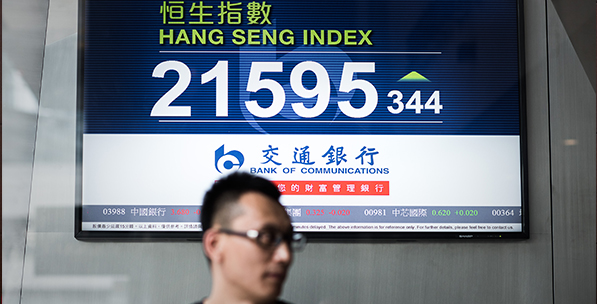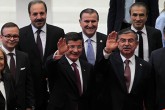When the fifth generation directors of Chinese cinema were among the most frequently discussed issues in world cinema, well-known representatives of this genre, including Zhang Yimou, produced different movies that portrayed historical issues as well as social problems that ordinary Chinese people face in their daily lives. One of the movies that generated a lot of international attention during this period was “The Story of Qiu Ju” from 1992. Although the movie did not receive much praise from Chinese critics, the story of a young woman trying to find justice in the complicated Chinese legal system attracted a lot of attention and awards in internationally. The key issue in the movie is an apology sought by the young woman from the village chief. Qiu Ju’s insistence on receiving this apology in the movie actually tells us a lot about recently revived debates between the nations of East Asia, including South Korea, Japan and China.
Debates about World War II and, in particular, Japanese actions during this war have been one of the most significant destabilizers of relations between East Asian countries. For decades, South Korea and China have insisted that the Japanese government apologize for its wrongdoings during World War II. These debates seriously affected foreign relations between the countries in the region. While territorial conflicts over the islands in the East China Sea and disputes over maritime delimitation have been frequently given as the most significant issues for foreign and security policy for these countries, debates over history have constituted a very serious dimension of international relations in the Asia-Pacific region. These conflicts escalate during anniversaries of wars and commemoration ceremonies, and in some instances have even led to what many call “textbook wars.” The outcome of apology diplomacy between the countries never satisfies any of the parties. Despite some heartfelt apologies from the Japanese government, neither Beijing nor Seoul has been satisfied. Words that have been used in textbooks, visits by Japanese prime ministers to the Yasukuni Shrine, movies and fiction about World War II have all became divisive issues in one of the economic engines of the world.
During this year’s commemorations, the message from Japanese Prime Minister Shinzo Abe is considered by many as a constructive step to thaw relations between these countries. Although Abe’s statement was regarded as a positive step by many, the Chinese official Xinhua news agency’s call for an official apology from Japanese Emperor Akihito once more caused tension in bilateral relations. This showed that a reconciliation of history will be hard to achieve in the region. At least the first step in thawing ties will not be from an agreement on the narrative of World War II. But this will not stop countries from pursuing an apology, and apology diplomacy will continue to be one of the centers of relations of regional powers.
At this point, the risk is that a solution to conflicts over history may not dramatically change the foreign policy behavior of these countries. However, the conflicts over history can significantly escalate tension in the region, may help nationalists boost their support from the public and may contribute to the difficulty in resolving some other conflicts among the countries, including territorial disputes. In the coming months and years, as the leaders of these countries try to stabilize relations and generate greater economic advantages, one of the most significant tests they will encounter will be historical controversies. They will be hard to manage, as the nationalist histories of the countries have fueled a significant degree of intolerance for one another. However, if the leaders want to avoid crises that can endanger the economies of the countries, they will find a way to contain these crises. In this sense, apology diplomacy between the countries will have its own cost.
[Daily Sabah, August 31, 2015]



